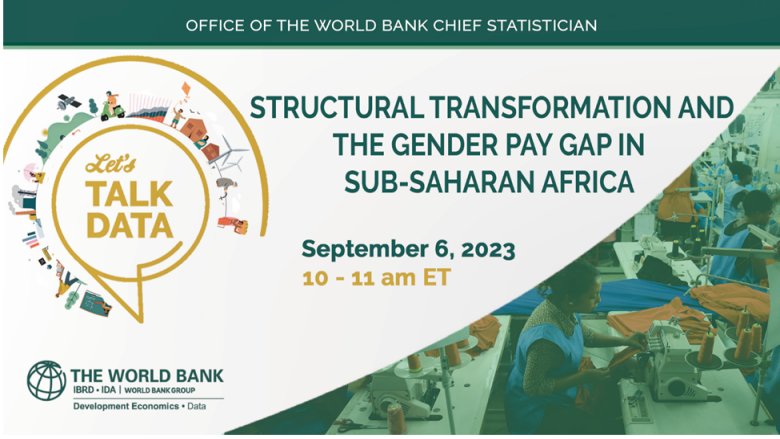

Structural transformation, such as shifts from employment in agriculture to urban activities, is key to a country’s growth, poverty reduction, and access to decent work. However, its effect on the gender pay gap is not clear. Evidence on the gender pay gap in sub-Saharan Africa is particularly limited, and often excludes rural areas and informal (self-)employment.
In this seminar, we will delve into the implications of structural transformation on equal pay among women and men in Sub-Saharan Africa. We will show you evidence on the extent of the gender pay gap in non-farm wage- and self-employment activities across Malawi, Tanzania and Nigeria at different stages of structural transformation. Our results suggest that structural transformation does not consistently help bridge the gender pay gap.
The analysis leverages nationally representative survey data from the Living Standards Measurement Study and decomposition method. It is conducted separately among individuals residing in rural versus urban areas in each country.
Haishan Fu - Chief Statistician of the World Bank and Director of the World Bank’s Development Data Group. Haishan is an active leader in the global data community, having served on the UN Secretary General’s Independent Advisory Group on Data Revolution for Sustainable Development, as Council Member of the International Statistical Institute, and as chair or member of the executive board or governing council of various data initiatives. She is responsible for the World Bank’s development data agenda, including oversight of leading global data public goods and international statistical programs, technical advisory services to client countries, development data partnership between international organizations and private companies, and the World Bank-hosted Global Data Facility.
Goedele Van den Broeck - Assistant professor in agricultural economics and food policy in the Earth and Life Institute at the University of Louvain in Belgium. Her research focuses on food value chains, labor and agricultural trade, with specific attention to gender and nutrition. She has extensive experience with survey design and implementation, impact evaluation and adoption studies in various countries in Latin America, Africa, Asia and Europe. She holds a PhD in agricultural economics from KU Leuven.
Talip Kilic - Senior Program Manager for the Living Standards Measurement Study (LSMS), the World Bank’s flagship household survey program housed at the Development Data Group. He was also a core team member for the World Development Report 2021: Data for Better Lives. In his managerial role, Talip oversees the extensive LSMS portfolio of face-to-face and phone survey data production; methodological and policy research; and capacity development activities. As a researcher, he focuses on poverty, agriculture, labor, and gender in low- and middle-income countries, as well as survey methodology and data integration to improve the quality, timeliness, and policy-relevance of household and farm surveys.
Kathleen Beegle - Research Manager of the Human Development Team of the World Bank's Development Research Group, and previously Lead Economist in the Gender Group. In addition to her peer-reviewed publications on poverty and labor, she has led on several large policy reports, including the World Bank World Development Report on Jobs 2012.
This event is supported by The Living Standards Measurement Study (LSMS) and the World Bank Gender Group.